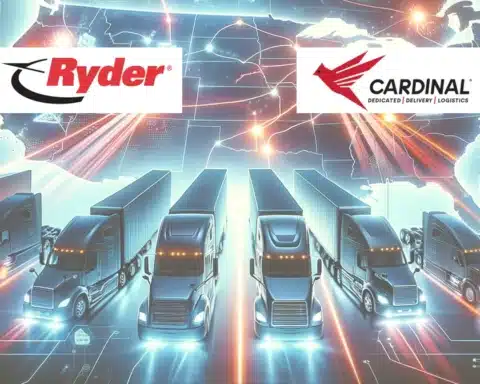Introduction
In the world of commercial trucking, leasing a truck can be a crucial step for many aspiring owner-operators looking to break into the industry. However, not all lease agreements are created equal, and some have been criticized for being predatory and detrimental to the interests of truckers. In this article, we will explore recent developments in the trucking industry, specifically the Truck Leasing Task Force (TLTF), which, in its most recent efforts, has aimed to shed light on maintenance requirements in lease-purchase agreements and protect the rights of truckers.
Predatory Lease-Purchase Agreements
Predatory lease-purchase agreements have long been a concern within the trucking industry. These agreements often put truckers in a vulnerable position, leaving them at the mercy of motor carriers who control most aspects of the operation. The TLTF, created through a provision in the 2021 Infrastructure Investment and Jobs Act, seeks to address these issues and ensure that drivers have access to fair leasing agreements.
Maintenance Requirements: A Key Concern
One of the critical aspects of lease-purchase agreements that the TLTF is shining a light on is maintenance requirements. During a recent meeting, task force member Paul Cullen Jr., an attorney with the Cullen Law Firm, pointed out that some lease-purchase agreements force truckers to have maintenance performed exclusively at the carrier’s shop. This restriction limits the driver’s ability to shop around for better prices on maintenance services.
Cullen Jr. explained, “Some carriers make them use preferred maintenance places, and it means the driver isn’t able to shop around for a better price. Some even go as far as using their own maintenance shop, and the driver is locked into a price.” This practice can result in drivers paying more for maintenance than they would if they had the freedom to choose where to service their trucks.
The End of the Lease Agreement: Hidden Costs
The end of a lease-purchase agreement can often be a challenging time for truckers. Many carriers include multiple maintenance fees without providing proof of completion when the lease agreement reaches its end. Jim Jefferson, a task force member representing the Owner-Operator Independent Drivers Association, shared a story of an over-the-road trucker who made all the payments only to discover that he owed $30,000 in maintenance fees and never completed the lease-purchase.
This situation highlights a significant concern for truckers who invest in preventive maintenance for vehicles they may never own. Steve Viscelli, an economic sociologist at the University of Pennsylvania and task force member, noted that drivers make these investments because they believe they are gaining equity in the truck, but the success rates of owning the vehicle are disappointingly low. Furthermore, unexpected repair costs can further exacerbate the financial burden on drivers.
The Mission of the Truck Leasing Task Force
The TLTF, comprising representatives from labor organizations, motor carriers, consumer protection groups, owner-operators, attorneys, educators, and other businesses, is committed to addressing these challenges. The task force aims to provide best practices to help drivers assess the impacts of a leasing agreement before entering into one. Additionally, it will make recommendations for changes to laws that promote fair leasing agreements, ensuring that drivers have access to transparent and equitable lease-purchase arrangements.
U.S. Transportation Secretary Pete Buttigieg emphasized the importance of supporting over-the-road truckers, especially during a time when the country relies on them more than ever. He stated, “The Truck Leasing Task Force is taking a hard look at leasing agreements as part of our effort to ensure every trucker in this country has good working conditions and can make a good living.” This sentiment underscores the significance of the task force’s mission in protecting the rights and livelihoods of truckers.
Conclusion
In conclusion, the TLTF is addressing critical issues in the trucking industry, specifically focusing on predatory lease-purchase agreements and their impact on maintenance requirements. Over-the-road truckers are often left in precarious situations, unable to choose where to service their trucks and burdened with unexpected maintenance fees at the end of their lease agreements. The task force’s efforts to promote fair leasing agreements and protect the interests of truckers are essential steps toward ensuring a more equitable and sustainable future for the industry. As they continue their work, it is hoped that truckers will see improvements in their working conditions and financial well-being, ultimately contributing to a stronger and more reliable trucking industry.








